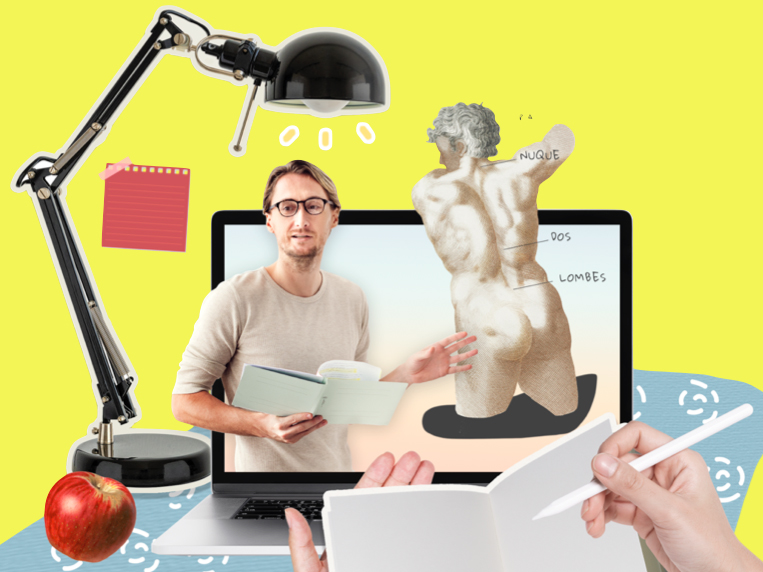
A student asked me, “Where do you get your ideas from?”
The thing is I’m constantly learning.
So, my ideas come from a lot of places. They come from documentaries, books, online courses, journal articles, the media, being out in the world and interacting with different people and places, audiobooks, and podcasts (just to name a few).
Every day, I set aside time to learn something new. Some days it will just be 15 minutes but I figure, it’s something. And learning something is always better than learning nothing.
Thanks to learning a little bit each day, I’m not the same person I was 10 years ago or even 10 days ago!
What I usually find is when I learn about a new topic, some aspect of my life improves. My mental landscape transforms. I experience a mindshift.
What’s a mindshift?
In her book Mindshift: Break through obstacles to learning and discover your hidden potential Dr Barbara Oakley states a mindshift is a deep change in life that occurs thanks to learning. That change can result from learning new skills or changing careers but also from changing your attitudes and relationships.
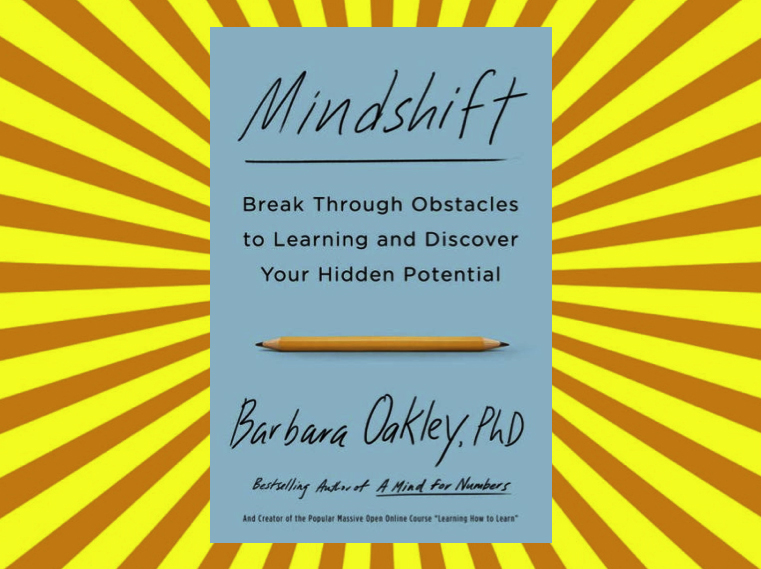
The thing is you’re never too young or old to experience a mindshift. You also don’t need to spend a lot of money (if any) to do so.
You see, there is no shortage of free or cheap information available online.
The challenge is sifting through all that information to find the good stuff.
The challenge is making the time to learn how to learn and deeply learn that information.
The challenge is getting comfortable with experiencing discomfort as you try to learn.
But becoming a lifelong learner is well worth the time and effort. Through the process of showing up to learn new things, you become more agile and mentally flexible. Life becomes more interesting and you do, too.
If you want to learn new things without formally enrolling in a university degree, here are my top tips for being a lifelong learner on a budget.
1. Sign up to MOOCs (Massive open online courses)
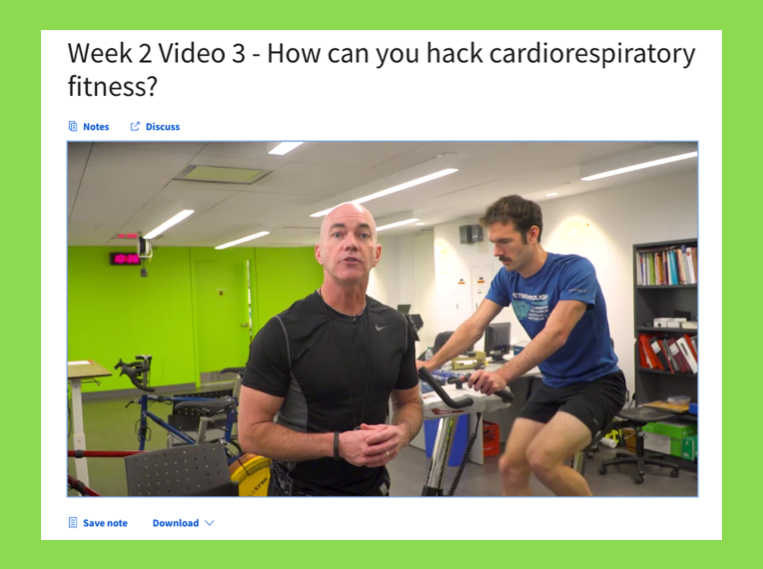
Thanks to the world of MOOCs, you can study at some of the best universities around the world without having to leave the comfort of your own home and spend any money.
To access MOOCs, you’ll need to have Internet connection, a notepad and pen. But that’s about it.
I recently participated in a fabulous free MOOC from McMaster University called Hacking Exercise for Health. This four week course was delivered by two exercise physiologists Dr Martin Gibala and Dr Stuart Phillips.
The course was packed full of cutting edge research on how to optimise cardio and resistance training as well as lots of practical tips. By the end of the course, I was able to devise my own workout programs.
This created a mindshift. How? Instead of paying a personal trainer to devise my workouts and paying for an expensive gym membership, I can now be my own trainer at home. This MOOC has just saved me a lot of money.
How can you find MOOCs that are a good match for you?
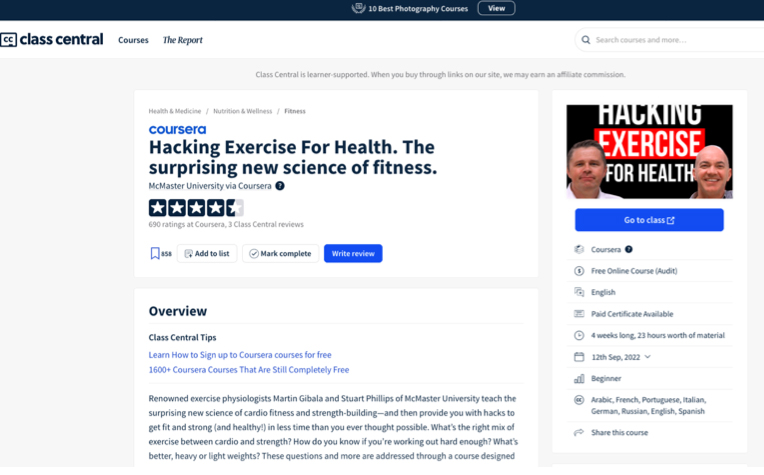
I recommend checking out Class Central. This is a website that provides ratings, reviews, and information on MOOCs. It will help you to select a MOOC that will best fit your needs.
2. Go straight to the expert’s website
If I’m interested in an expert’s work, I will check out their website. An academic’s website lists all their published academic papers but it also usually lists podcasts, books, talks, and radio interviews they have done.
For example, Dr Barbara Oakley’s website contains links to her upcoming public events, research papers, books, talks, and media appearances (e.g., podcasts and radio interviews).
If you find the person’s academic papers challenging to read, start by exploring interviews they’ve done and videos of their talks.
3. Utilise your local library

Books can change your life for the better. And libraries are full of life changing books that you can access for free.
I frequently go on book binges at my local library where I max out my library card. What have I got to lose?
If I don’t like a book, I can just stop reading it and move onto reading something else. At the end of the day, it costs me nothing.
If a book isn’t in your local library collection, ask the librarian if they can order it in on inter-library loan. You can also see if they will consider purchasing the book for their library collection (hey, there’s no harm in asking).
Over the last few years, I have saved hundreds of dollars as a result of my local library purchasing books that I have requested.
4. Visit university libraries
University libraries contain books that you wouldn’t normally find in your local community library. Anyone can go into a university library and look at the books.
Depending on the rules, you may not be able to take out a book, but you can photocopy a section from it or find a comfortable chair and start skim reading.
5. Reddit subgroups

I recently decided I wanted to start running to improve my fitness. But I had no idea where to start. I hadn’t run long distances since doing cross country at school! I thought perhaps Reddit may have some useful ideas and advice.
On Reddit, I found several threads where people shared great advice, tools, and strategies for beginner runners (e.g., C25K program, run one song and then walk one song, useful stretches to do before you head off on a run, timer interval apps, etc).
6. Host a dinner discussion group
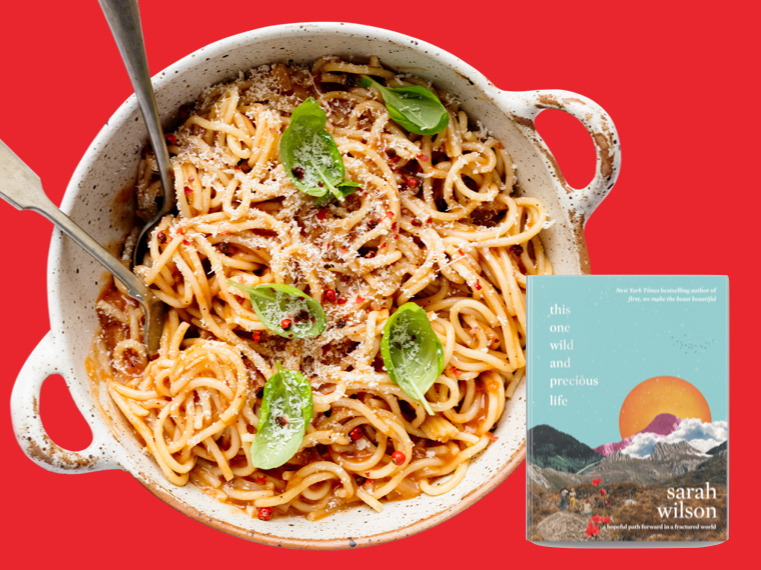
Before Covid hit, a group of friends and I would meet for dinner to discuss issues relating to the climate crisis. We would select an article or book to read before the dinner. Then, everyone would bring a dish to share and the reading material would form the basis for the dinner discussion.
These dinners were a nice way to connect with my friends on a topic that we were all concerned about. They also provided extra motivation to learn about challenging topics. If I’m hosting a dinner discussion, I better have read the article or book before my friends arrive!
Due to Covid concerns, my friends and I haven’t had a dinner discussion in a little while. But as the weather warms up, I’m hoping to host one of these events outside. There’s also the Covid safe option of meeting on Zoom.
To sum up
There is no shortage of information or opportunities to expand your world through learning. Like anything in life, it’s about prioritising what’s important to you. Could you spend 20 minutes a day or one hour a week learning something new? And what would your life be like in 6 months’ time if you did?
